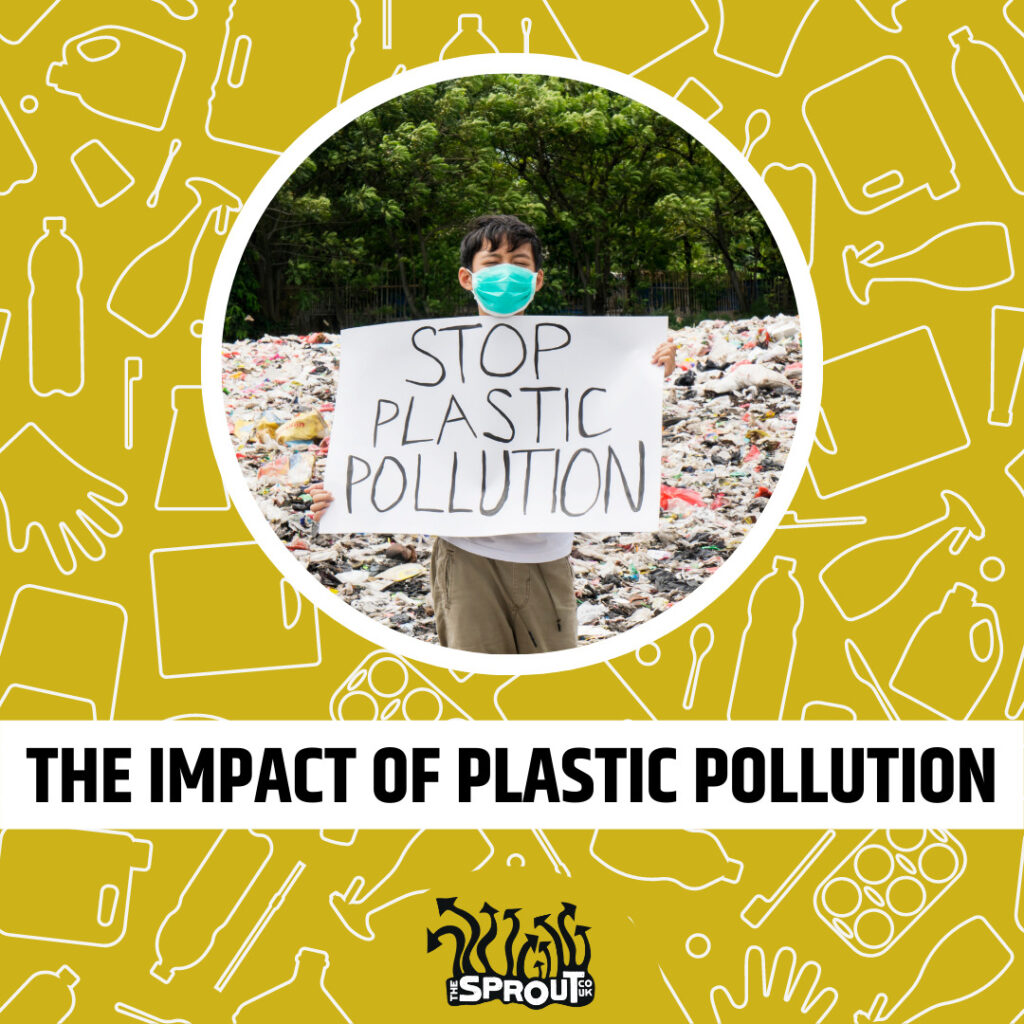This article aims to highlight marine pollution and the devastating threat it poses to the water around the country.
Whilst in recent months most of us have been more concerned with the immediate impact of Coronavirus, climate change isn’t going anywhere. That is why here at The Sprout, inspired by Plastic Free July, we wanted to explore specifically how pollution affects our seas and oceans.
Plastic pollution is a huge issue
- It’s estimated that by the year 2050 there will be more plastic in the ocean than fish.
- The Great Pacific Garbage Patch is a collection of two masses of marine debris in the North Pacific Ocean. Researched from The Ocean Cleanup Project claimed that the patch covers 1.6 million square kilometres with a density estimated to vary from 10 to 100 kilograms per square kilometre with an estimated 1.8 trillion individual pieces of rubbish.
- It’s estimated that plastic accounts for up to 80% of all marine debris studied.
- There may now be around 5.25 trillion macro and microplastic pieces floating in the open ocean; Weighing up to 269,000 tonnes.
- A US Lead team shockingly found substantial amounts of plastic fragments and fibres present in the arctic ice; levels reached as high as 12000 particles per kilogram. It is unknown how harmful these micro fabrics will be to both marine and human life.
The impact
- There are dead zones in the oceans that have been created by pollution making living there impossible for marine or plant life.
- Recent studies have revealed marine plastic pollution in 100% of marine turtles, 59% of whales, 36% of seals and 40% of seabird species examined.
- 100,000 marine mammals and turtles and 1 million sea birds are killed by marine plastic pollution annually.
- Corals that come into contact with plastic have an 89% chance of contracting disease compared to 4% for those that do not.
The situation in Wales
- Over 60 per cent of the population of wales live and work on the coast; Consequently, rising sea levels will inevitably lead to the loss of many homes.
- The 2017 Great British Beach clean report by the Marine Conservation society found that in Wales alone 677 pieces of litter were collected for every 100m of Welsh beach.
- The Welsh Government has recognised the need to act against marine pollution; the Wellbeing of Future Generations Act of 2015 addresses to some extent pollution in the seas around Wales. The Welsh government was also the first national government in the world to declare a ‘Climate Emergency’ in April 2019.
- At 62.8% the Welsh recycling rate is the second highest in the world only bested by Germany.
Hopefully now, if it wasn’t before, the significance of plastic pollution is clear. If you want to help out, there are numerous organisations in Wales dedicated to keeping rubbish off beaches and out of the water. With everyone only just being allowed back outside, and holidaying abroad becoming more difficult, perhaps now is the best time to appreciate the natural beauty of the Welsh coasts!
Related info:
This article was originally written by Theo as part of National Marine Week 2020.

